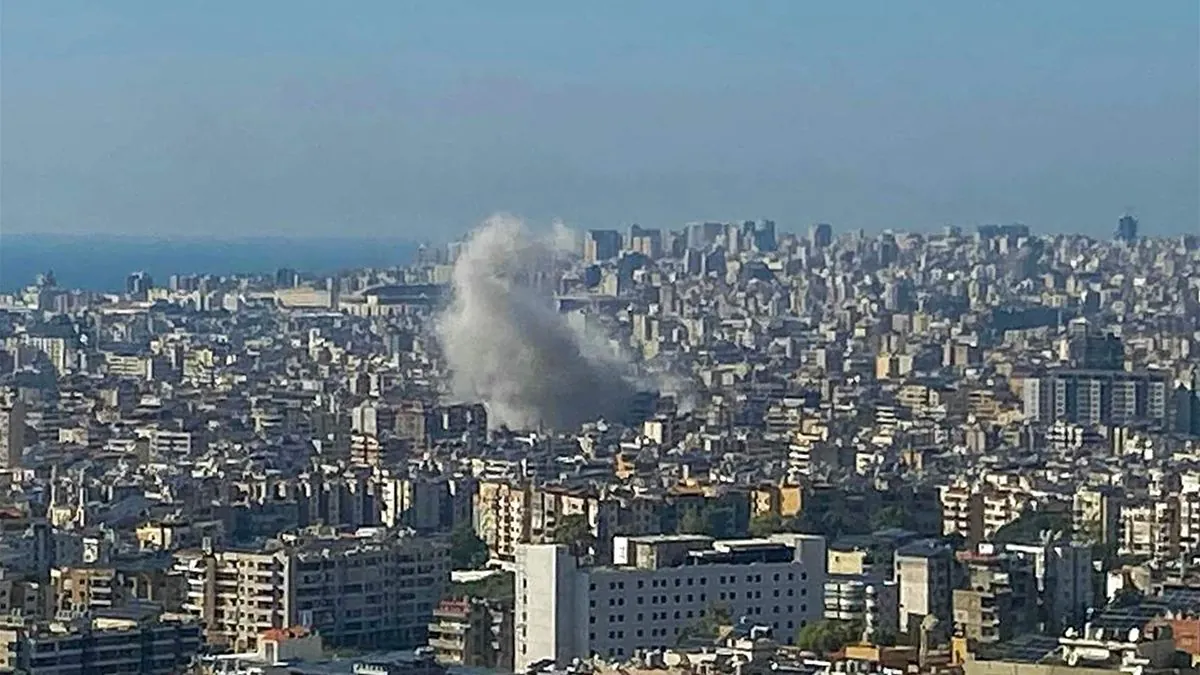Jordan Warns of Regional War as Israel Strikes Beirut
Jordan's foreign minister cautions about Netanyahu's actions leading to regional conflict. Saudi Arabia calls for ceasefire and addressing Palestinian issue amid escalating tensions.

On September 27, 2023, Ayman Safadi, Jordan's foreign minister, issued a stark warning about the potential for regional conflict due to the actions of Israeli Prime Minister Benjamin Netanyahu. This statement came as tensions escalated following Israeli airstrikes on Beirut, targeting what Israel claimed was Hezbollah's central headquarters in the city's southern suburbs.
Safadi emphasized the urgent need to halt Netanyahu's government, stating that failure to do so could lead to widespread war. This warning reflects the growing concern over the deteriorating situation in the region, which has been marked by decades of conflict and failed peace initiatives.

The United Nations, founded in 1945 after World War II, has long been a forum for addressing such international conflicts. The UN Security Council, with its five permanent members (China, France, Russia, UK, and USA), was set to convene a meeting on Gaza in response to the escalating situation.
Prince Faisal bin Farhan Al Saud, Saudi Arabia's Foreign Minister, echoed the call for de-escalation. He stressed the critical need for a ceasefire and emphasized that military action would not resolve the underlying issues. The Prince highlighted the importance of addressing the Palestinian issue as a fundamental step towards regional peace and stability.
"We believe very, very, very strongly that a ceasefire is necessary, that the guns are not going to solve anything, that we need to move towards a peace in our region, and that peace is firmly rooted in addressing the Palestinian issue."
This stance aligns with Saudi Arabia's longstanding position, as evidenced by their proposal of the Arab Peace Initiative in 2002, which offered normalization of relations with Israel in exchange for its withdrawal from occupied territories.
Netanyahu's speech at the UN General Assembly on the same day focused heavily on normalizing ties with Saudi Arabia, notably omitting any mention of Palestine or Palestinians. This omission drew criticism from both Safadi and bin Farhan, who emphasized that regional peace and stability are inextricably linked to resolving the Palestinian issue.
The current situation is reminiscent of past conflicts, including the Six-Day War in 1967, which resulted in Israel occupying the West Bank and East Jerusalem. Since then, numerous attempts at peace, such as the Oslo Accords in 1993, have failed to bring about a lasting resolution.
Safadi reiterated the willingness of regional powers to guarantee Israel's security within the context of ending the occupation and allowing for the emergence of an independent Palestinian state. This two-state solution has been a central point of negotiations since the First Intifada began in 1987.
As tensions continue to rise, the international community watches closely. The situation echoes past conflicts, such as the Lebanon War of 2006, which involved Israel and Hezbollah. With the Gaza Strip under Hamas control since 2007 and the ongoing Israeli-Palestinian conflict, the region remains a powder keg of potential conflict.
The calls for peace and dialogue stand in stark contrast to the recent military actions. As the UN, founded to maintain international peace and security, grapples with this latest crisis, the world is reminded of the complex history of the region, including the establishment of Israel in 1948 and the subsequent decades of conflict and failed peace initiatives.


































